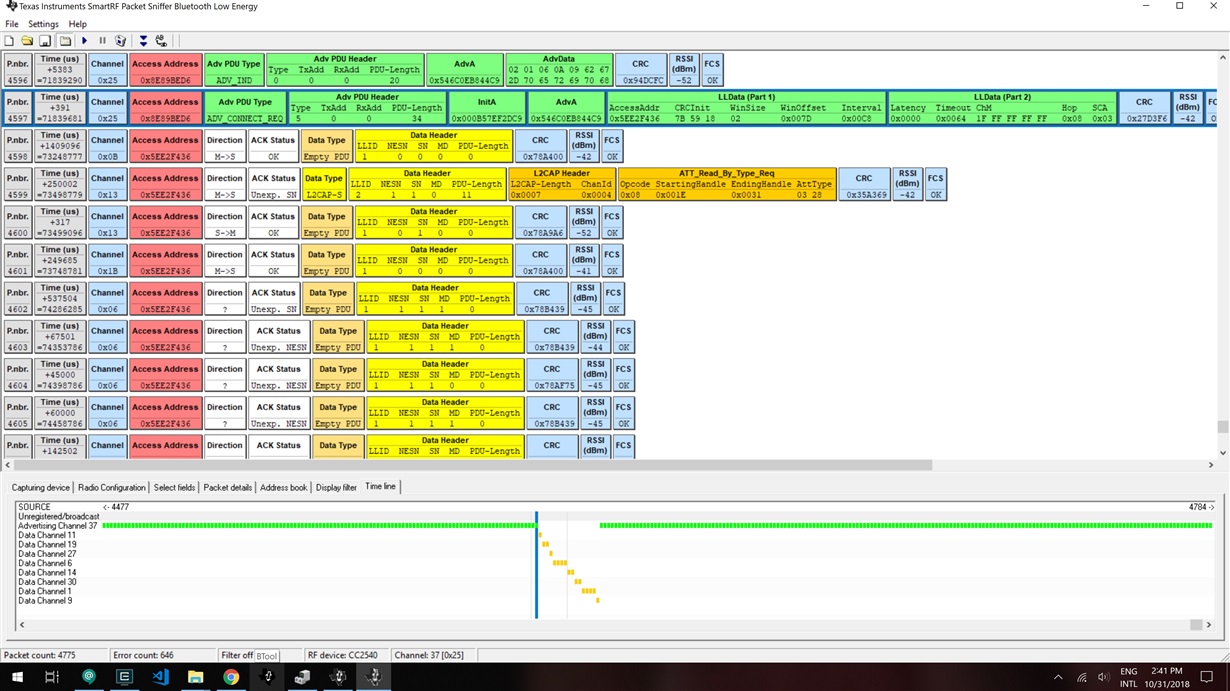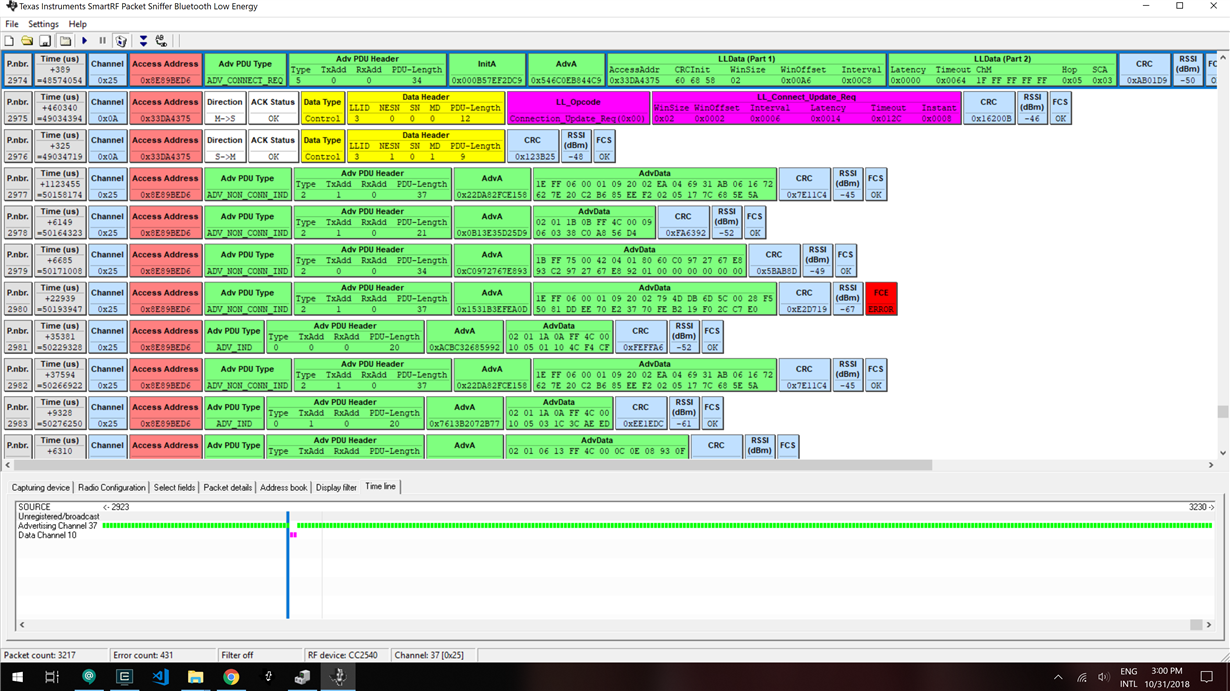Other Parts Discussed in Thread: , BLE-STACK
Hello, I have asked this related question some time ago.
I was facing the problem of being able to connect and discover characteristics only with certain types of hosts (such as Iphone 8, cc2640 host_test and might gecko). But, when I try to connect with another host (such as Iphone X, or BlueGecko) I cant pass the stage of discovering the characteristics after connecting.
Related or not, this happens when I add a PWM functionality (using ti/drivers/PWM.h).
I assume this is a problem with the TI-BLE Stack, since it was stated by Marie H in my previous post.
Is there a relation with the ti-blestack and ti-drivers or any memory flaw/leakage or inconsistency (such as the ID 0x80 from NVM being used by storing the Service Change Indication Flag) that prevents the peripheral from having its services/characteristics discovered?
How should I avoid this bug?




